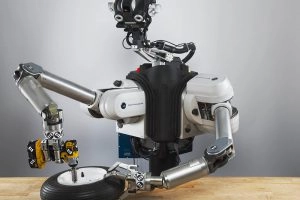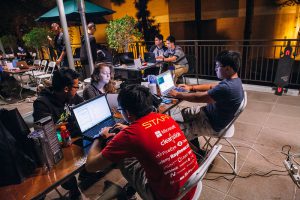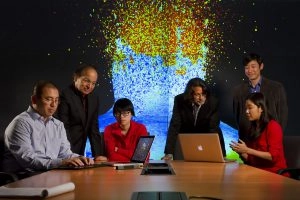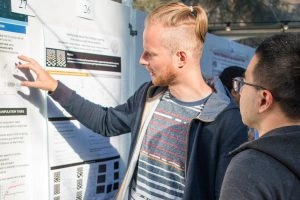Description
Heather Culbertson, USC Viterbi assistant professor of computer science, and her team explore how humans interact with the world, robots and technology through touch, and the impact it has on increasing multiple elements of human productivity and positivity. In this seminar, Culbertson discusses how haptics — technology that can create an experience of touch — affects communication in a socially distanced world.
Who Will Benefit
– Those looking to learn how haptics technology can better our lives and communication in a socially distanced world
– Research scientists hoping to combat the pitfalls of virtual communication, such as Zoom fatigue
– Those seeking technological solutions to flatten the mental health curve caused by COVID-19
About Our Featured Faculty
Heather Culbertson is an assistant professor of computer science at the USC Viterbi School of Engineering. She is also the director of the Haptics Robotics and Virtual Interaction (HaRVI) Lab. Her research focuses on the design and control of haptic devices and rendering systems, human-robot interaction and virtual reality. She currently serves as the Vice-Chair for Information Dissemination for the IEEE Technical Committee on Haptics. Previously, Culbertson was a research scientist in the Department of Mechanical Engineering at Stanford University, where she worked in the Collaborative Haptics and Robotics in Medicine (CHARM) Lab. She received her PhD in the Department of Mechanical Engineering and Applied Mechanics (MEAM) at the University of Pennsylvania. She completed a master’s in MEAM at the University of Pennsylvania and earned a BS degree in mechanical engineering at the University of Nevada, Reno.





